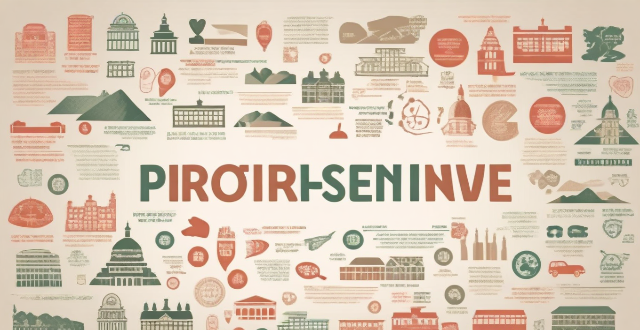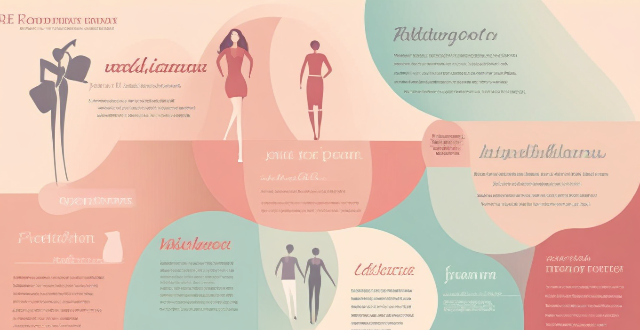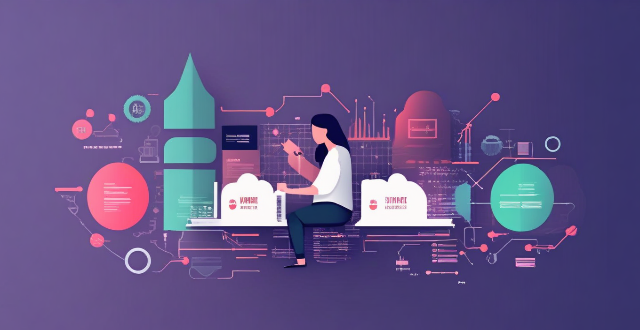Women Place

How can women develop their emotional intelligence in the workplace ?
Emotional intelligence (EQ) is a crucial skill for success in the workplace, especially for women who often face unique challenges and biases. Developing EQ can help women navigate complex social dynamics, build strong relationships, and lead effectively. Here's how they can enhance their emotional intelligence: Self-awareness involves understanding your own emotions and practicing self-reflection. Self-regulation means managing your emotions and staying calm under pressure. Motivation includes setting goals and finding sources of inspiration. Empathy involves listening actively and showing compassion. Social skills entail improving communication and building relationships. Continuous learning means seeking feedback and engaging in training. By focusing on these key areas, women can enhance their ability to navigate the workplace effectively. Remember that developing EQ is an ongoing process that requires practice, patience, and a commitment to personal growth.

What are some common challenges faced by women in the workplace, and how can they be addressed ?
The article discusses common challenges faced by women in the workplace, including gender bias, work-life balance issues, harassment and discrimination, and lack of mentorship and networking opportunities. Solutions to these challenges are also provided, such as addressing gender bias through pay equity analyses and blind hiring processes, promoting work-life balance with flexible work arrangements and parental leave policies, creating a safe and respectful workplace through clear policies and training on harassment prevention, and providing mentorship and networking opportunities through mentorship programs and leadership development programs. The article concludes that addressing these challenges requires a concerted effort from both individuals and organizations to create a more equitable and supportive environment for women in the workforce.

Can women play professional football ?
**Can Women Play Professional Football?** The topic discusses the possibility and reality of women playing professional football. It starts with a historical perspective, highlighting the early days when women were not allowed to participate in football due to societal norms and gender roles. However, the first recorded women's football match took place in 1895, despite opposition from male-dominated football associations. The development of women's football is also discussed, with the establishment of the Women's World Cup in 1991 marking a significant milestone for the sport. Professional leagues such as the National Women's Soccer League (NWSL) in the United States have provided opportunities for female players to earn a living through football. The skill and talent of female footballers are emphasized, stating that they possess the same level of skill and talent as their male counterparts. Many women have showcased their abilities on the world stage, earning recognition and respect from fans and peers alike. However, the topic also highlights the challenges faced by women in football, such as unequal pay and limited resources compared to men's teams. There is a need for continued advocacy and awareness to ensure that women's football receives the same level of attention and investment as men's football. In conclusion, women can indeed play professional football. They have demonstrated their skills and talents on various platforms, including international competitions like the Women's World Cup. While there is still room for improvement in terms of equality and resources, it is clear that female footballers are capable of competing at the highest level of the sport.

How can women protect themselves from pickpockets and theft while traveling ?
Traveling, especially for women, comes with risks such as pickpocketing and theft. To protect themselves, women should stay alert, dress appropriately, secure their belongings, stay connected, be cautious about trusting strangers, and choose safe accommodations. By following these guidelines, they can reduce their risk of falling victim to theft and enjoy a safe journey.

What are the legal rights of women in the workplace ?
This text discusses the legal rights of women in the workplace. It outlines five key areas: equal pay, anti-discrimination, pregnancy leave, harassment and bullying, and parental leave. The text explains that women have the right to receive equal pay for equal work, be protected from discrimination in hiring, promotion, and termination, take pregnancy and parental leave without losing their job or facing negative consequences, and work in an environment free from sexual harassment, bullying, and other forms of gender-based misconduct. The text concludes by emphasizing the importance of these rights in ensuring that women can work in a safe and supportive environment where they are treated fairly and with respect.

How will interstellar exploration impact our understanding of the universe and our place within it ?
Interstellar exploration is a quest to understand the universe and our place in it. It has the potential to revolutionize scientific knowledge by unraveling cosmic origins, understanding planetary systems, and advancing physics. It can also impact human perspective by realizing our place in the cosmos, cultural and philosophical implications, and ethical considerations. Interstellar exploration stands at the threshold of transforming our knowledge and perceptions, pushing the boundaries of science, and reshaping humanity's self-image.

How does climate change disproportionately affect women in developing countries ?
Climate change disproportionately affects women in developing countries due to socio-economic factors, cultural norms, and division of labor. Impacts include reproductive health issues, nutritional deficiencies, loss of traditional occupations, increased workload, water scarcity, and energy poverty. Adaptation and mitigation efforts should involve women in decision-making and build their capacities. Gender-sensitive policies and interventions are needed to address these challenges and promote a more equitable future.

What are the best ways for women to avoid dangerous situations while on a trip ?
The article provides a comprehensive guide for women to stay safe while traveling. It emphasizes the importance of researching the destination, staying connected, trusting instincts, keeping belongings safe, being aware of surroundings, traveling with friends or joining groups, and learning self-defense techniques. Each section offers key points that highlight specific actions women can take to ensure their safety during their travels.

In what ways do women contribute uniquely to leadership roles in the workplace ?
Women's contributions to leadership roles in the workplace include empathy, emotional intelligence, inclusivity, collaborative leadership, adaptability, communication skills, and innovative thinking. These qualities can lead to more compassionate and diverse work environments, effective decision-making, and creative problem-solving.

What steps should women take to research the safety of a destination before traveling ?
The provided text offers a comprehensive guide for women to research the safety of a destination before traveling. The steps include online research such as checking government travel advisories and joining travel forums, seeking professional advice from travel agents and security experts, planning ahead by making copies of important documents and informing someone about your itinerary, packing smart with items like personal alarms and door stop alarms, being prepared on the ground by dressing appropriately and learning basic phrases in the local language, and trusting your instincts to avoid potentially dangerous situations. By following these steps, women can enhance their safety while traveling and be better informed about potential risks.

How can women effectively manage their wealth ?
Managing wealth is crucial for women to achieve financial security. Tips include setting SMART financial goals, creating a budget, building an emergency fund, investing wisely, prioritizing retirement savings, and seeking professional advice. By following these steps, women can effectively manage their wealth and achieve their financial goals.

What are the common fertility issues faced by women ?
Fertility issues can be a sensitive and complex topic for many women. There are several common fertility problems that women may face, which can impact their ability to conceive and carry a pregnancy to term. These include ovulation disorders, endometriosis, uterine fibroids, tubal blockage, and age-related infertility. It's important for women who are struggling with fertility to seek medical advice and explore treatment options that best suit their individual needs and circumstances.

In what ways does education empower women socially and politically ?
Education is crucial for women's empowerment, enabling them to challenge societal norms and contribute more fully to society. It fosters increased awareness, improved socioeconomic status, and enhanced social relationships. Education also leads to greater political participation, policy influence, and promotion of gender equality. Overall, education enriches society by improving the lives of women and contributing to a more equitable world.

How can women build a diversified portfolio to minimize risks and maximize returns ?
The article provides a comprehensive guide on how women can build a diversified portfolio to minimize risks and maximize returns in the stock market. It emphasizes the importance of education, starting early, setting clear goals, diversifying investments across different asset classes, industries, and geographic regions, rebalancing regularly, and considering professional advice when needed. By following these tips, women can create a strong foundation for long-term financial success.

How can I get involved with women-focused charity work locally or internationally ?
Involving in women-focused charity work is a meaningful way to promote gender equality and empower women. This guide provides tips on how to get involved locally and internationally, including researching organizations, volunteering time, donating money or resources, attending events and fundraisers, fundraising for international organizations, participating in online campaigns, and traveling abroad to support women's issues. Additionally, it emphasizes the importance of being open-minded, building relationships, staying informed, and evaluating your impact to make the most of your participation.

How do work-life balance policies affect female employees differently than male employees ?
Work-life balance policies, such as flexible scheduling, remote work opportunities, and paid leave, can have different impacts on female and male employees due to societal expectations, family roles, and workplace norms. Women may benefit more from these policies as they are more likely to take on caregiving responsibilities and may face biases in the workplace. Men may also benefit from these policies but may not utilize them as frequently as women do. Employers should strive to create a supportive workplace culture that recognizes and addresses the diverse needs of all employees, regardless of gender.

How should women behave in a mixed-gender professional environment ?
Navigating gender dynamics in a mixed-gender professional environment requires women to exhibit confidence, professionalism, and foster positive relationships with colleagues. Key guidelines include speaking up, taking credit for achievements, dressing appropriately, conducting oneself with integrity, collaborating with colleagues, networking, challenging stereotypes, seeking feedback, supporting diversity, mentoring others, staying authentic, and pursuing personal growth. By following these principles, women can thrive professionally and contribute positively to the workplace culture.

What advice would you give to women who struggle with managing relationships ?
Managing relationships can be challenging, especially for women juggling multiple roles. Effective strategies include open communication, setting healthy boundaries, practicing empathy, maintaining independence, resolving conflicts constructively, and continuous mutual growth. By adopting these approaches, women can enhance their relationship management skills and foster more fulfilling connections.

How can counseling help women dealing with infertility-related stress ?
Counseling is crucial for women dealing with infertility-related stress. It helps identify emotional distress, address mental health concerns, build resilience and coping strategies, navigate medical treatment options, and foster hope and healing. By providing emotional support and promoting self-care practices, counseling empowers women to face the challenges of infertility with strength and courage.

What role does communication play in women's relationship management ?
The article discusses the crucial role of communication in women's relationship management, highlighting its importance in building trust, understanding, empathy, and intimacy. It also provides tips for effective communication, such as active listening, non-verbal cues, I-messages, choosing the right time and place for conversations, and compromising and collaborating. By employing these strategies, women can navigate conflicts and challenges in their relationships effectively.

What resources are available to help women learn about wealth management ?
The text provides a summary of resources available to help women learn about wealth management. It mentions online courses and webinars, books, podcasts, and financial planners and advisors as some of the resources that can be used by women to gain knowledge and skills in wealth management. The resources are aimed at helping women take control of their finances and secure their financial future.

What steps can women take to build a strong professional network ?
Building a strong professional network is crucial for career growth and advancement. For women, it can be especially important as they often face unique challenges in the workplace. Here are some steps that women can take to build a robust professional network: 1. Attend industry events and conferences. 2. Join professional organizations and associations. 3. Utilize social media and online platforms. 4. Find a mentor or sponsor. 5. Participate in training programs and workshops. 6. Volunteer for committees or boards. 7. Stay in touch with colleagues and alumni.

What is the success rate of in vitro fertilization (IVF) for women ?
In vitro fertilization (IVF) success rate for women depends on age, cause of infertility, and quality of eggs and sperm. Younger women with healthy eggs and sperm have higher chances of success, while older women or those with certain causes of infertility may face lower success rates. Other factors such as the number of embryos transferred, clinic experience, and use of assisted reproductive technologies can also impact the outcome. It is important to consult with a qualified fertility specialist to determine the best course of action for achieving pregnancy through IVF.

What regular health check-ups should women prioritize ?
As women, prioritizing regular health check-ups is crucial for maintaining good health and preventing potential health issues. Key components of the annual wellness visit include medical history review, physical examination, vaccination updates, and screenings such as mammograms and colonoscopies. Mammograms are essential for breast cancer screening in women over the age of 40, while Pap tests and HPV tests are used to screen for cervical cancer. Colorectal cancer screening is important for both men and women starting at age 50. By focusing on these regular health check-ups, women can take proactive steps towards a healthier life.

What are the best fashion tips for women in the workplace ?
Fashion plays a crucial role in the workplace, as it can influence how others perceive you. Here are some fashion tips for women in the workplace: - Dress appropriately for work is essential. You don't have to wear a suit every day, but you should dress in a way that shows you take your job seriously. Avoid wearing overly casual clothes like jeans or flip flops. Stick to neutral colors and avoid bright or flashy patterns. Make sure your clothes fit well and are comfortable to wear all day. - Accessorize wisely. Keep jewelry simple and understated. Choose a statement piece, like a scarf or necklace, but don't wear more than one at a time. Avoid loud or jangling jewelry that could be distracting in the workplace. - Pay attention to grooming. Keep your hair neat and tidy. Make sure your nails are clean and trimmed. Apply makeup sparingly and choose natural-looking shades. - Invest in quality basics. Quality basics are the foundation of any great work wardrobe. Invest in well-made basics like black pants, white shirts, and pencil skirts. Look for items that can be mixed and matched to create different outfits. Don't skimp on quality – cheap fabrics and poor construction will show after just a few wears.

How can I create a fitness plan specifically for women ?
Creating a fitness plan for women involves understanding their unique physical and physiological needs. Tips include setting realistic goals, incorporating strength training and cardiovascular exercises, considering hormonal cycles, staying hydrated and fueling the body properly, and seeking professional guidance when needed. By following these tips, women can achieve their fitness goals and improve their overall health and well-being.

What are the risks associated with delayed childbearing in women ?
The timing of childbirth has become a topic of concern for many women today, with increasing education levels and career opportunities leading to delayed childbearing. However, this can have several risks associated with it, including fertility issues, higher miscarriage rates, chromosomal abnormalities, preterm birth and low birth weight babies, financial burden, career challenges, and limited time with children. It is important for women to consider these risks when deciding on the timing of starting a family.

How do women-specific NGOs measure their impact on reducing poverty and inequality ?
This article explores how women-specific NGOs measure their impact on reducing poverty and inequality by focusing on key metrics such as economic empowerment, education and skill development, health and well-being, and gender equality and empowerment. It also highlights successful NGOs like Women's World Banking, Room to Read, and International Planned Parenthood Federation (IPPF) that use data collection tools to track progress towards their goals.

What role do women play in addressing climate change ?
Women's Role in Addressing Climate Change: Women play a crucial role in addressing climate change through leadership and advocacy, innovative solutions, community engagement and education, and promoting gender equality and climate justice. They have led international negotiations, founded organizations dedicated to climate action, developed new technologies and business models, engaged in activities such as tree planting and waste reduction, and advocated for gender equality in decision-making processes. Women's contributions are essential to achieving a sustainable future for all.